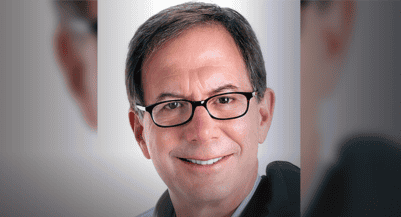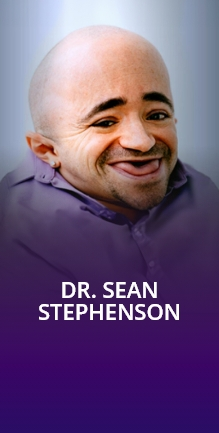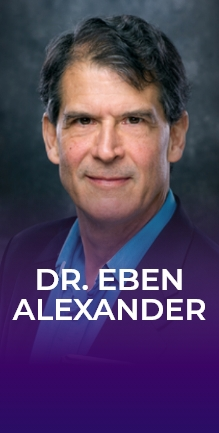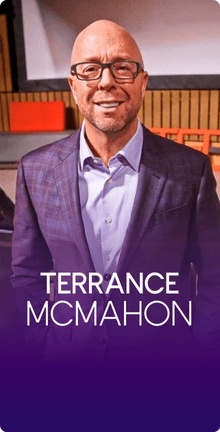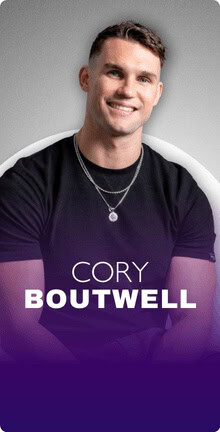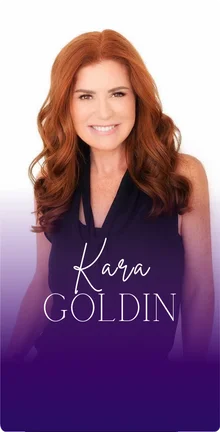In this Episode
- [02:37]Mark Goulston shares insights on carving away unimportant things to reveal what’s truly important in life. He talks about his journey of being uncomfortable with vulnerability and realizing it’s a gift when others care about him.
- [07:34]Mark discusses the concept of real conversations and how they can create emotional intimacy.
- [16:17]Mark and Stephan reflect on their understanding of love language and their journey of learning and growth, prioritizing empathy and helping others.
- [25:00]Mark shares his hope for a good life despite facing a serious illness, emphasizing the importance of having a backup plan and not being overly attached to expectations.
- [34:52]Stephan asks Mark if he calls in angels or divine assistance for support.
- [42:29]Stephan and Mark elaborate on finding joy in selflessness and caring for others, with Dr. Goulston describing his approach to suicide prevention.
- [48:20]Here’s how to learn from Dr. Mark Goulston’s genius and connect with his team.
Mark, it’s so great to have you back.
Well, it’s good to be with you, Stephan. If I get emotional, I’m just going to let it flow. Well, the effect it’s had on people who care about me is that it’s not a burden. We’ll see where this goes.
I was recently watching a famous video clip of Steve Jobs and Bill Gates. I think it was Kara Swisher’s show. It was towards the end of Steve Jobs’s life, he looked over at Bill Gates and said, “I remember a lot of Beatles songs and Bob Dylan songs, and he looked over at Bill Gates and said, “The two of us have memories longer than the road that stretches out ahead.”
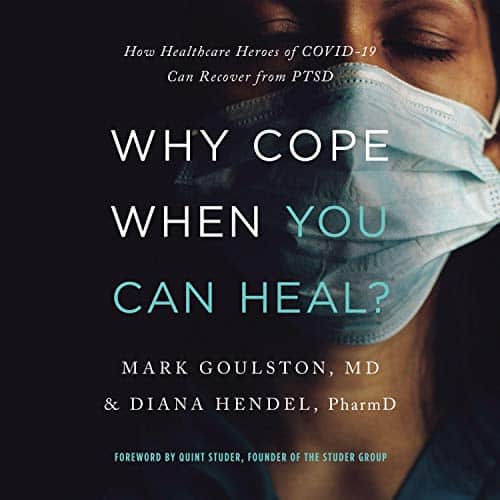
Then, Steve Jobs realized what he had said and choked up. Kara Swisher says, “Well, let’s end it on there.” And I feel that’s true with you and me. We have memories longer than the row that stretches out ahead for me.
First of all, I want to tell you that my understanding of how the universe works informs what I’m about to say now. It’s no coincidence that we’re friends and that we seemingly randomly met each other at a baseball game in New York in, I don’t know, 2000 or something like that.
I see the divine setup of things and so many things, and I see it in this and our relationship. It was in a—I’m sure you remember this—what do you call those things?
The New York Yankees suite.
Yeah, a suite. That’s how much I know about baseball and going to baseball games. I think I’ve gone to three in my life. That’s how we met. It’s a divine setup. All of this is—in my view. What would be some of the most divinely set-up circumstances and experiences that you’ve had in recent times in relation to what you’re going through now?
Well, I’m stockpiling a bunch of videos. I’m not sure what I’ll do with them. I’m up to 25 episodes, and they’re called ‘I’m Dying to Tell You.’ Each one will say, “Hey, I’m dying to tell you. It’s Dr. Mark Goulston, and I’m not dying soon, but sooner than I planned, and every day something reveals itself to me.”
The first episode is called ‘Michelangelo Dying.’ I talk about how it is said that Michelangelo said, “I saw the angel in the marble, and I carved till I set it free.” I saw what’s important in life, and I carved away everything that wasn’t important. It’s amazing how many things in our lives are unimportant and can be exciting.
I know when you people are younger than me—I’m 75—you have to make a living, you get excited, and all that. I’m not putting that down. But for me, what’s important is how deeply and closely you can connect to the people who care about you and return the care. There’s something really special about that.
Another episode was ‘Let People Care About You.’ I recorded another episode about how unabashed vulnerability heals both parties. When I run into someone who cares about me, like you do, I start to get emotional. But hopefully, it’s not “boo-hoo poor me” emotional. I just let the caring in, and I get emotional. I talk through it, and my eyes are tearing up, as they’ll probably do sometimes here.
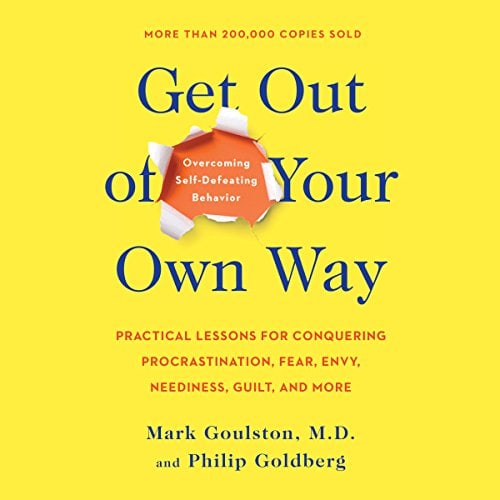
Because when it first happened, I got really embarrassed and apologized, saying, “Oh, I’m so sorry. I don’t want to burden you.” Now, you might tell me, because I love your humor, “Well, it’s a burden to me, Mark.”
That’s not a joke I would say. If a joke is at somebody else’s expense, or there’s even a chance that there could be a tinge of truth that’s uncomfortable or unpleasant, that’s not really a joke. That’s just mean. I only make jokes that are with love.
I’m going to be presenting this to our community, M.E.T.A.L, and it’ll be interesting because we both know some people who are uncomfortable with vulnerability. There’s no telling what they’ll do, but I’m going to still share whatever I’m going to share.
I’ve always been uncomfortable letting anyone care about me because I’m a doctor by training, a therapist, and a caregiver, so I would always push it away.
If a patient said something grateful to me, I’d say, “No, that’s fine. I’m just so glad that you’re in a better place.” I would just push away letting anyone care about me because I felt it would be a burden to them and inappropriate.
But what’s happened is as I’ve had these conversations and I feel someone caring about me, I get emotional. When I apologized, people said, “It’s not a burden, Mark. It’s a gift.” I said, “How is it a gift?”
They say this is one of the most real conversations I’ve had in a long time, and that’s what I’m going to talk about when I do this episode. What does it really mean? What happens is I surprise people who don’t often run on oxytocin.
In a world that so often operates on ego and self-interest, the greatest gift we can give is to respond to all with pure love and kindness. Share on XOxytocin is what causes emotional intimacy. When someone is unabashedly vulnerable, without laying it on you, like, “Help me, help me, help me,” they’re just unabashedly vulnerable. If you perceive that person as not laying it on you and admire that person, I think it calms the conversation down.
I was thinking recently that this is probably a bridge too far. I have another episode called The Seven Year Itch 2.0. It’ll be an article in Newsweek that a lot of the younger generation don’t know, but there was a play and a movie with Marilyn Monroe and her dress being blown up called The Seven Year Itch.
Basically, it said that romance goes away after about seven years of marriage. I’ve been drilling into that because I have young children who are not young children; they’re 41 and 38, and they each have two children. I’m worried about the seven-year itch because a phenomenon happens when a husband and wife fall in love, and it’s pretty exciting, especially if you’re an entrepreneur; it’s like another exciting thing. But then what happens is when the entrepreneur turns their attention, let’s call it a male, to being an entrepreneur, the wife tries to stay excited.
But when the wife becomes a mother, and she starts feeding that infant and looking into the eyes of that unabashedly vulnerable infant, after a month or two, that infant starts to smile when they are feeding. There is a surge of oxytocin. There’s a surge of emotional connection beyond what that mother could have imagined. What happens is she begins to see the entrepreneurial excitement of her husband as a little bit juvenile.
Oxytocin is what causes emotional intimacy.
Because she’s so focused on this connection that she didn’t know it was possible. The more she focuses on that connection because it’s mesmerizing, the more often the husband feels marginalized, but he throws himself into his entrepreneurial business. But then what happens is the mother needs him to participate. The mother needs him to stop being distracted when he’s home.
In a little while, the mother also displaces her anger at her infant, who’s not feeding or sleeping and is exhausting the mother, who may also be working. The mother starts to displace her anger at her husband. Frequently, the husband feels he can’t do anything right, so she jumps on him.
Furthermore, if that woman is working, she has to hide her joy at being a mother because she has to be so excited when the CEO lands a seven-figure deal and there’s a bunch of high fives, and she has to join in. She can’t be Debbie Downer. She fakes it, and so the combination of not being able to express the joy that she feels about being a mother at work and also displacing the anger she feels at her child on her husband, what happens is the husband starts to feel lousy.
Then, in about seven years of marriage, if they’ve had a child, let’s say the child’s three or four years old, the child is starting to say, “Daddy, Daddy, Daddy.” The dad connects with the child and feels this wonderful relationship. If they’re able to afford it, when the dad goes on business trips with clients or associates, and he meets a woman on the trip, and the woman looks into his eyes and thinks the world of him the way his wife once did when they first met, there’s a real contrast.
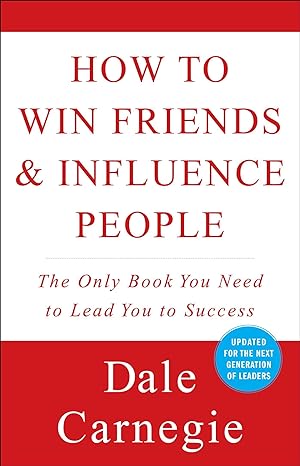
“Geez, out in the world, everything I do isn’t wrong. When I come home, everything is wrong.” What I’m worried about, and I’m seeing, is that a lot of marriages are going to start ending because if the marriage can afford a divorce, the husband’s going to say, “You don’t like me. I apparently don’t like you. I don’t do anything right in your eyes. I love our kids. It’ll be an amicable divorce, and why don’t we go our separate ways? We both deserve to be happy,” and then there’s going to be a divorce.
Often, that wife or mother will be left with those kids, and they’ll maybe do shared parenting. The wife or mother left with those kids may find it difficult to get remarried, bringing the kids into the next marriage. Then, the husband may marry the person he met on the road who adores him. But if she’s young enough, she says, “I’d like to have a child.” Then it rinses and repeats.
I know that’s long-winded, but I’m just seeing it so clearly. Did you track any of that? Does that make sense to you?
I think that’s plausible, feasible, and potentially even likely, but it’s not been my experience. I’m seven years into my marriage, and we’ve never been closer.
You’re an unusual man, Stephan. I mean that in the best positive way. I think you have the capacity for deep thoughtfulness, deep curiosity, and a deep desire to—if something is not going right—drill down and figure out what that is to communicate respectfully and to be someone who can encourage and facilitate your wife’s respectful conversation.
I believe all of those are true, and if someone’s listening in, I think most people will say, “That ain’t my marriage.”
It could be.
It should be it. Not only could it be, but it should be.

Marshall Rosenberg would say nonviolent communication. The ‘should’ is the most violent word in the English language. So I don’t know if it should or shouldn’t. I just think it’s an opportunity. If it’s not currently available and you want it to be, you can create that reality. It’s not like you’re changing others, but when you change yourself and how you relate to everything and everybody, not just your spouse, you change the environment. I think if you change timelines, you jump timelines.
When you raise your vibration, you get a different movie script, and you get to play the lead actor in a much better movie.
I agree with you. Let’s split the difference. I love languages. Okay, delete should be, consider could be, and settle on ought to be.
Okay. Alright.
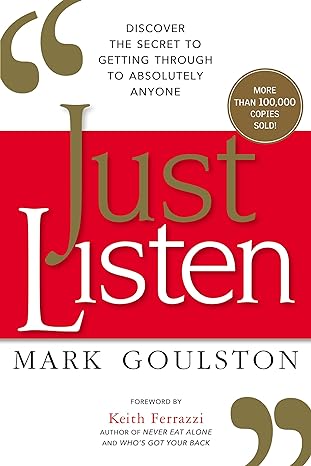
I want to share another lesson. One of the other episodes is I’m blessed that I’ve been married for 45 years. We have a good marriage, and I see my grown children and grandchildren together every day. I have four grandchildren, four and a half and under. My wife was right to keep the house because there’s a pool there, and if we moved into something less than that, the grandchildren would be restless. They’d chomp at the bit after 15 minutes, but now they come over, they stay for an hour and a half, and I adore them.
I wasn’t close geographically to my grandparents, and I tried to get home when they were there. Here’s something that I’ve discovered: When I get home, my wife, my two daughters, and four grandchildren are in the kitchen. I am not excluded, but I’m not included. I mean, nobody looks at me. Nobody asks me anything.
If I try to say something, they’ll look at me like, “What?” Because I’m not really into the details of my wife and daughter’s lives. My wife is an amazing grandmother, and occasionally, the grandchildren will play and look at me.
There was one occasion, and here was the breakthrough: no one was looking at me, and my daughters were talking, multitasking, and juggling things. I picked up my cell phone and looked at it. Even though no one was looking at me, they all looked at me with the stink eye, like, “What are you looking at your phone for?”
When life's burdens obscure our vision, the path to hope lies in carving away all that stands in the way - until the light within us shines through once more. Share on XIt was like, “Well, geez, apparently I’m in space, and I’m not allowed to be preoccupied.” I said this once and only once because it was pathetic. Nobody’s including me, so I wanted to check my phone, and they looked at me like, “Really?” The next step was I put the phone down, and I just sat there patiently because I love looking at my family, holding court even though I’m being ignored, and I thought that was pretty crappy too.
Then, I had this notion: I’m not going to think about what’s on my phone, who’s trying to reach me, or what project I’m involved with. I’m going to totally rid my mind of everything, and I’m going to wait for my grandchildren to look at me, and I’m going to bathe them in utter delight.
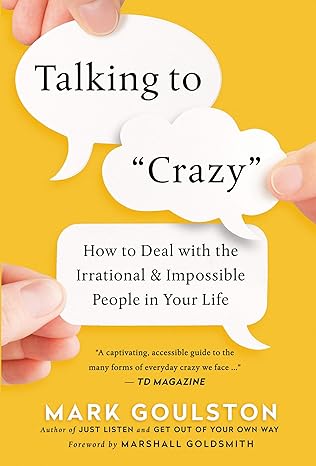
On the occasion that they look at me, they look into my eyes like, “I’m looking into your eyes through my camera,” utter delight. I’m trying to do it with everyone, so Stephan, I’m so glad to see you again. We don’t connect that often, and we should because I’ve known you for so long, and I’ve known about your journey, and it’s always meant a lot to me.
I bathe my children in utter delight, and then they look away, but then they take a second helping of it. They don’t often get that utter delight because my children adore them, but they’re checking boxes, getting in the car, finishing lunch, getting dressed, and going to sleep. Unfortunately, a lot of parenting can be transactional, so every time my grandchildren look at me for that second helping, I feel the healthiest emotionally.
There’s zero ego going on inside my head. There’s zero preoccupation. It’s total undivided attention and delight, so now I’m trying to bathe the world in that. If I go to a restaurant and the waiter or waitress waits on us. If they look at me and say, “Anything else?” I look at their name tag and say, “Yeah, Nancy, one other thing. Nancy, hey, thank you,” I look into her eyes, and she says, “Okay.”
Sometimes, I watch them as they leave the table, and it’s almost like their shoulders will shake because they’re thinking, “What was that?” That’s another lesson I’m learning; I’m just learning more every day.
Well, that’s beautiful, courageous, and inspiring to go through this journey with a learner’s mindset and with appreciation and gratitude rather than despair and despondency, if that’s the word. It’s like a gift that you’re giving a lot of people. To even just be willing to be on podcasts or be out in public sharing your story rather than hiding or feeling sorry for yourself, not that that’s disallowed or not okay. It’s perfectly understandable if that’s what’s going on, but it takes a whole other level of courage to do what you’re doing. My hat’s off to you for that.
I don’t exist in my present or future. What I am is an empathic catalyst for others.
Well, thank you. I was going to think some people say, “You seem so calm and serene and peaceful. How is that happening?” I realize I have always been the helper, and I see you this way: I don’t exist in my present or future. What I am is an empathic catalyst for others, helping them go from wherever they want to land in their future, helping them get there in whatever way possible.
Don’t charge for it. I probably mentor 45 people, all free, but I get something from it. The mutual regard is amazing, but I don’t exist in my mind in the present. I live to learn, and I live to give. Also, when I think of death, I have a glib saying: “Win, lose, or die, I’m good to go.”
Part of what I really care about is that I don’t want to have a lot of pain and suffering. I don’t want to be a burden to people. I have a pathological need not to be a burden. That’s going to be a problem because people care about me. My family says, “You’re not being a burden,” but if I feel I’m being a burden, I want them to respect my wishes.
The third thing is tying up loose ends. I’m involved with several projects where I’m the creative visionary. I don’t do much else, but I want the projects to continue without me, so I’m in the process of making that happen, tying up loose ends, and making introductions to appropriate people.
I’m very serene. I have a condition called High-Risk MDS. It’s myelodysplastic syndrome, and it leads to leukemia. We’re in the process of figuring out meds versus a bone marrow transplant. Bone marrow transplants have a reasonable success rate, but you have a fair amount of risk factors. As I read into it, a bone marrow transplant is not a walk in the park.
Have you kind of resigned yourself to dying? Or do you hold out? It’s going to save you, or you’ll somehow get miraculously healed. Do you have that kind of faith or hope? Or are you just like, “Yeah, this is it, that’s terminal.”
I have many reasons to live, but I’m okay with dying. I don’t want to die. I want to live as long as possible. I’m really okay with it, except for the pain and suffering, being a burden, and whatever. I don’t know if I’m passive or just accepting it. Here’s something else I discovered, and if you’re an entrepreneur, this might apply to you.
I have a really clear vision of my best shot at keeping from dying or prolonging it. I’ve recently become more and more informed about that and about the timetable. I’ve assembled the best possible people, so I’m in contact with the top bone marrow transplant person at Cedars-Sinai in Los Angeles and the City of Hope, and they’re great people.
I live to learn, and I live to give.
I’ve met with them, and they’re considering my condition, which is a little bit unusual. I have a few mutations in my bone marrow that are worrisome, and I’m involved, but I’m also watching the process happen.
I did an episode on hopes versus expectations and disappointment versus devastation. What I’ve discovered is that too many people focus on expectations, count on too much, and don’t have a backup plan. When the expectation doesn’t happen, and they don’t have a backup plan, and they count on it too much, they plummet. They often go into depression. But if you have hope, and I know the saying, “Hope is not a strategy,” you can have a strategy.
I have a strategy but am not overly attached to expectations, so I have hope. I look at the statistics and options and have great doctors in place. I have to ward off. Apparently, there’s a bunch of people who care about me, and they say, “Oh, don’t do Western medicine, or you got to try all these supplements, you got to do A, B, and C,” and I’ll share those with my hematologists who are patient, and they’ll tell me how and why those things don’t work. They’re not dismissive. They’ve looked into them and said, “That won’t work in your condition.” Having a clear vision of what a good death would look like, or a good life, my real hope is that I don’t die and that I hold on to what this is teaching me so that my life can be transformed and live according to what the prospect of dying is teaching me, and so I’m hopeful of that.
The difference between hope and expectation is when an expectation doesn’t happen, and you’re overly attached, you’re devastated. That’s part of the plummeting. Whereas when hope happens, and it doesn’t happen, you’re disappointed.
Too many people focus on expectations, count on too much, and don’t have a backup plan.
Yeah, it hurts. It can hurt a little bit, but you’re right—it’s much easier to shake off disappointment than devastation. Does that tangentially answer your question about whether I am rolling over or just being passive? I don’t think I’m doing that at all.
It certainly wouldn’t be how I would frame it, but this is why I asked because having hope has both aspects, the duality of the lack or the sickness; at the same time, it wants things to be better and believes it’s possible. I don’t know.
It just feels like there’s something here that will be quite useful for you, and it has to do with certainty. Hope and certainty are so drastically different from each other because certainty is like faith. You’re sure that this is for your highest and best good, that this is unfolding how it’s meant to, and that it’s leading to the most benevolent outcome.
It’s very difficult to have certainty in an uncertain world. This physical plane is designed to be uncertain—that’s part of the test. Certainty actually doesn’t even really exist in this physical plane. You have to pray for it—to get sent to you from the upper worlds and higher dimensions. This is my understanding, at least, so I pray for certainty a lot. Not just certainty, but certainty beyond logic—certainty that is bulletproof.
I don’t want to get swayed by anybody, by any opinions, by any dogma, by any manipulation or propaganda or anything. I want to be absolutely certain about the things that I’m certain about, and that’s very powerful. Praying for certainty might be something to consider trying.

I’ll share something with you. I’m a member of Marshall Goldsmith 100 Coaches, a collection of the top coaches in the world. Marshall Goldsmith is a very well-known executive coach, and we have these Monday calls for the community—not unlike M.E.T.A.L, having Saturday meetings. He’ll bring up something and often speaks to the elephant in the room.
On a recent call, he talked about impermanence. The reality of the world is that it’s impermanent. One of the things he threw out of the coaching community is that research shows that people who do coaching often find it different than coaching for a sport, where you learn a skill and want to win and use that physical skill.
He said the evidence shows that in the majority of cases, coaching only lasts as long as the coach is there to remind the person to keep doing something. Yes, there are all these theoretical things. If you do that long enough, coaching can be internalized as a habit and part of your personality.
When an expectation doesn’t happen, and you’re overly attached, you’re devastated. Whereas when hope happens, and it doesn’t happen, you’re disappointed.
He says the reality is that there are a lot of situations in which someone is a wonderful leader. One of our members is a wonderful, admired, beloved, iconic leader named Alan Mullally.
Alan Mullally ran Ford during the Great Recession, and it was the only car company that hadn’t bailed out. He came over from Boeing, led Ford through that, and transformed Ford. His whole approach was actually believing that all the problems and solutions could be identified and solved by just believing in and reaching out to your people.
Instead of having to solve it from the top down, he said we got enough people at Ford; any problem we have, someone knows what the problem is, and someone else knows the solution. Let’s keep finding them, and that’s his approach. Ford did magnificently. He leaves Ford, and it’s gone back to its old habits. It’s great what he did prevented it from needing to be bailed out, but Marshall says, “I’ve become much more humble. When I coach people, my approach is, “I hope what we talked about that you agree with, that you might try, and will last for a day. I’m not against it lasting longer.'”
Marshall is a philosophical Buddhist who says, “I’m good with it lasting for a day because human nature is often inflexible to change.” This is interesting because of the coaching industry and all the promises that it makes. You can look at it. The coaching industry, especially many of those coaches, puts out book after book after book, “This is the latest, greatest solution to things.” But what happened to your last book that was the greatest solution to things?
There are some people who think if people had just stuck with Dale Carnegie’s How to Win Friends and Influence People and kept practicing it and never read another self-help book, we’d all be good to go. But human nature is people buy something new, they hope it’ll work, they try it, it works, then it doesn’t. They feel embarrassed about it, and then they get a new book where they get to try something new.
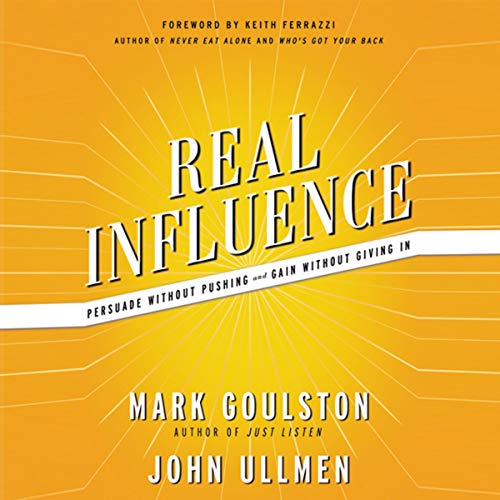
I found that very refreshing, and Marshall has this way of just rattling people. It’s a good rattle. But getting back to certainty, I think I’m making peace with the impermanence of life. It doesn’t mean I’m giving up.
The more I make peace with the impermanence of life and I’m active, the more I have a strategy for my illness. I have the right people in place. They’re going to do a conference call and a case conference on me at City of Hope, so I’ll get some of the best minds figuring out. This is kind of an interesting case. What do we recommend? Whatever the recommendations are, I’m good to follow.
Do you ever call in angels or divine assistants? Let’s say there’s a conference call or in-person meeting, and all these experts will be there. Do you believe in angels? Do you, if so, call in their assistants and have specialists in the room and on your unseen support team assisting these experts, whispering into their consciousness that still small voice that says what if you try this modality? What if you try this drug?
I know we have slightly different paths, and I’m even envious of the fact that you can call those paths. I’ll tell you something that I do call in. Like I said something about Michelangelo dying, scrape away what’s unimportant. You’ll see what’s important. I believe in Michelangelo’s love and kindness. Then, if you scrape away anything that’s not loving and not kind, we could heal the world in an instant.
I believe in that, and I practice being somewhat loving and kind. Some people will say, I do a pretty good job of that. I would call upon, I believe in that. I would think, “Well, when they meet, I hope they all get a little, that they’re informed and lifted by lovingness and kindness.”
Coaching can be internalized as a habit and part of your personality.
I’ll tell you something that’s happening. A lot of these healthcare centers are kind of silos, and I’m fortunate the doctors I now have don’t have egos, which can be a problem in healthcare, but they are in silos. I’ve been fashioning emails where I send them to all of them. I will often say, “You have no idea how well I feel I’m being taken care of. What can I do for any or all of you?” And so they’re all in the emails.
They don’t really have relationships with each other, but I’m seeing some of the relationships begin to form because of what will happen if I address all of them and someone responds lovingly and kindly.
I reached out to them just yesterday because I thought I had a blood clot in my leg, and I thought, “Oh, great, pulmonary embolism, just what I need.” I said, “My internist was out on maternity leave. I really don’t know the person who’s covering. Could someone order a test to see if I have a blood clot? Even if it’s not your specialty.” I sent that out to them.
Within 15 minutes, I got a call from one of their offices saying, “We’ve scheduled you for—I guess it was an echo or a sonogram of your left leg in an hour,” and I was there. Even the technician who did it and I’m concerned and feeling pain in my left calf. She looked at me and said, “Well, your doctor is supposed to tell you, but I can’t. There’s no blood clot. “
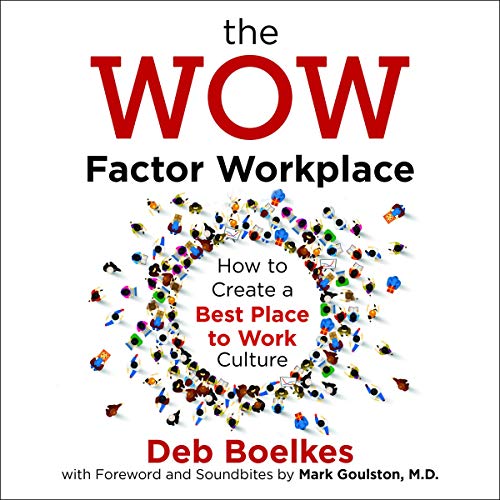
I immediately emailed them, “Hey, no blood clot. Hooray. Good for us.” I think I can tell it’s touching them. I’m not special, but I can tell that they think Mark’s a good guy. Let’s make sure we figure out how to help them. So maybe I’m the angel. I don’t know.
We all are. I want to share something profound that I learned from studying Kabbalah. It’s about miracles. A miracle isn’t defined as when the impossible becomes possible. It is defined as removing the illusionary veils that don’t allow us to see the light in every experience and moment.
That’s Michelangelo, and that’s what you’re talking about.
I mean, okay, maybe. What strikes me about the Michelangelo comment you made earlier is that scraping away what isn’t important requires a value assessment that may not be accurate because what I’ve found is unimportant and used to be things like doing dishes. Then, it became equally important to send emails to prospects.
The reason why it’s equally important to me now is because I’m revealing light in the process of doing it. I’m helping my wife, Orion. I’m being of service. I’m doing something that allows me to meditate and connect with God and my unseen support team.
Whereas if I’m head down and writing emails, I’m more in a beta brainwave state. I’ll use it as a metaphysical experience rather than just the mundane aspect of washing dishes. For me, that’s no longer unimportant.
A part of that, Stephan, is I think we have our own language, and hopefully, we respect each other’s language. I think what you discovered while doing dishes is one of Orion’s love languages, and it’s a vehicle for connecting with her in one of the joyless chores that she would normally do. By doing that, you’re connecting with her.
Practice being loving and kind.
For instance, I love my wife, and her main love language is acts of service. I fix a light bulb, and she’s really happy to be with me. I will try to share one of the ideas. If I tried to share this interview, her eyes would roll over, and she’d say, “I’m trying to stay awake.”
Maybe what I’m realizing is that love language, there’s probably a better thing for the people we love and realize than trying to impose upon them one of our love languages, seeing it as their love language and trying, not trying to convert them.
Going back to the utter delight thing. One of the things that I’m also doing it with is my wife. Now, my wife and I have a number of annoying habits that annoy each other. I’m applying ‘bathe in utter delight’ when I look at my wife, and she’ll be talking about something or worrying about something, a physical thing. Sometimes, she’ll repeat whatever she’s worried about because of her anxiety. In the past, I would lose patience when I heard it for the second or third time.
But now, when I’m with her and don’t know that she’s picking it up, I’m looking into her eyes and saying thank you. Thank you for tolerating me. Thank you for giving me a home off the range.
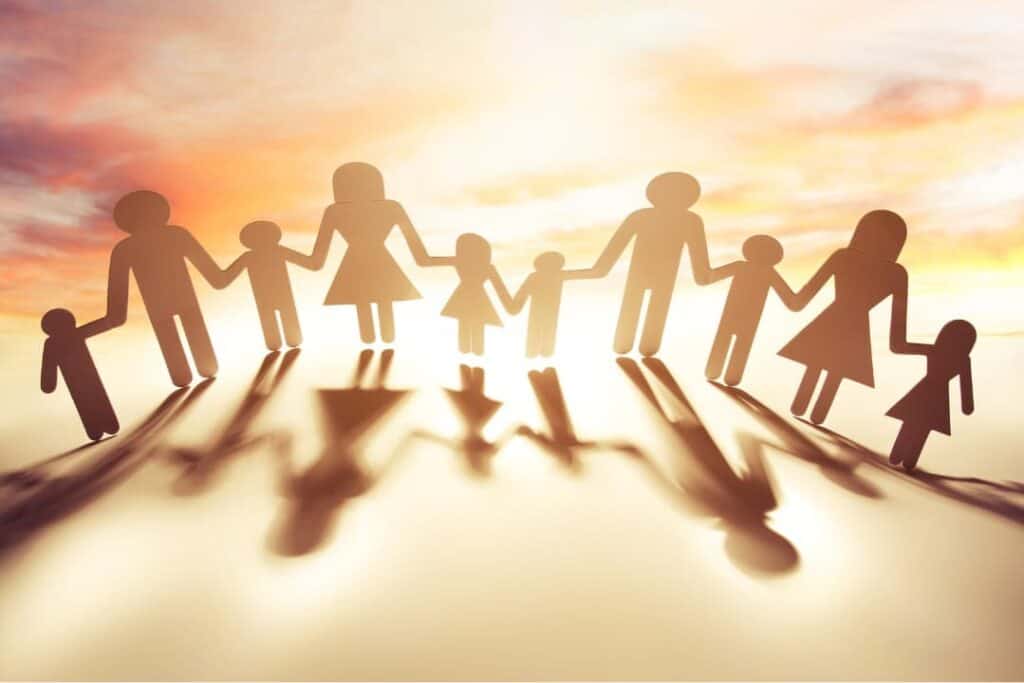
Because many of us are creative, many of our left-brain people, and many of our semi-visionary selves, are not that great at creating a home. We’re great at being metaphysical and transcendent, and we are able to connect dots that nobody else can connect and that many people in our family don’t care about. I’m bathing her in the utter delight of thanking you for providing me, a kind of weirdo, with a home for over 45 years. Does that make sense?
I guess the thing that is another level for me is doing the dishes; all that makes sense is what you described. I’m speaking to Orion’s love language and helping her to feel loved and supported. But I was doing that five years ago, eight years ago, when I was doing the dishes, then two.
I find joy in it now in a way that is different because of my spiritual awakening. I’m now seeing this as a bigger picture: I’m living life as best I can, at least like a prayer. That includes everything from getting the mail at the mailbox to doing the dishes to just greeting my family, my wife and son when I get in the door. It all matters.
The more I make peace with the impermanence of life, the more I have a strategy for my illness.
How you do one thing is how you do everything, as the adage goes. If you are aware of your awareness in these small things, you’ll have more awareness of your awareness in the bigger things, too.
Okay, we each have different vocabularies. For me, I would call that “I’m finding joy in my utter selflessness” because when I am utterly selfless, I come from abundance. When I am all about others, I’m all about everything.
Whereas if I start to focus on, “What’s in it for me? What am I going to get from this? How am I going to scale this? How am I going to monetize that?” That’s never been my strong suit. I’ve never been that good at it, and we have enough money, but I never focused on it.
But getting back to the utter delight, there’s something in being completely selfless. I was a suicide prevention specialist for 35 years. None of my patients died by suicide.
I think what happened is I don’t know if I bathed them in utter delight, but I bathed them in utter caring, which meant I wasn’t checking boxes to fit a protocol, to fit a diagnosis, to fit a treatment. Yeah, I was aware of all that.
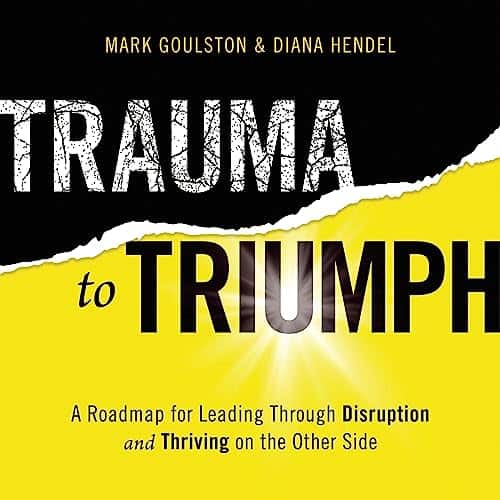
The two things I focused on, which I think contributed to my being pretty effective, is I wanted to focus on where their hurt was, how deep their hurt was when it was at its worst, and how much time we had until it reoccurred and they took their life.
I just focused on that without diagnosing it, and it would be peculiar because I would listen into their eyes for that, and it was always there. It would be listening in order to join them in the dark night of the soul and keep them company there, not push them, so that they would metaphorically look at me like, “What are you doing here?” Not pushing them and just saying, “Hey, I don’t think you should be all alone in this,” and they’d start to cry. When they started to cry, they’d begin to drain the pus, abscess, and the dark night of the soul. I called the process surgical empathy.
The other thing I would focus on in Michelangelo’s terms is that I knew there was hope somewhere. They couldn’t see it, but I knew there was hope somewhere, and I did my best to carve away what got in the way so they could see and feel it. Because if a suicidal person can feel hope, they can feel that there’s a future for them. It’s very simple.
I think when I share with people, people say, “Well, that makes sense.” What’s happened is I never scaled it because researchers in depression and suicide would send me their kids, and I’d say, “Do you have any desire to know how I approach this?” They said, “Well, if it’s not evidence-based and you don’t have a control group, we can’t look at it.”
“Why are you sending me your kid? Why don’t you send him to the university?” They’d say, “Well, we don’t have your track record, and I’m worried about my kid.” I’d say, “Are you seeing an inconsistency there?” They say, “No.” Then I say, “Send me your kid.”
When I am utterly selfless, I come from abundance. When I am all about others, I’m all about everything.
I was never focused on building a body of work, scaling it, or turning it into the ‘Doc Mark Goulston Suicide Prevention Clinic.’ I think part of the reason I’m doing this, and I’m dying to tell you, is I learned a lot that the world needs but doesn’t want, and I don’t care anymore. I’m going to keep sharing it on podcasts like this and other places.
If people find it relevant, fine. If people find it not permanent enough, too impermanent, what I’m telling them, that’s fine too. It also keeps me alive to share what I’ve learned, so that’s what I’m doing. I’m so grateful to you for giving me a platform to do that.
You’re quite welcome, and I really appreciate you. I also love you, and I will pray for you. I have been praying for you.
Well, can you accept my loving you because you are a little bit of an intellectual? You’re a spiritual intellectual.
Thank you.
Hey, Stephan, one last thing. I love you.
I love you, too. If there’s anything that our listener wants to take from this to take the next step with in terms of some of these lessons you’ve learned so that they can watch some of the videos, maybe read some of your books and articles, and things like that. Where should we send them to?
If a suicidal person can feel hope, they can feel that there’s a future for them.
I hate to marginalize the intimacy of our conversation, but I am pretty current on LinkedIn. people can email me at mg*******@***il.com“>mg*******@***il.com.
I don’t know what I’m going to do with the ‘I’m dying to tell you’ collection of videos. They’ll probably appear somewhere. A publisher wants to transcribe and put them into a book, but I’m not pushing for that. Two of my mentees have created a Mark Goulston bot.
Actually, if people reach out to me, I can give them access to that because I have 10 books, 1,200 articles, and a bunch of appearances. My partners have said, “You’ve got a lot of content,” so you can ask anything, and it’ll answer in my voice. But reach out to me because we haven’t launched yet, and let me ask your opinion. Tell me if this is too cute.
They were going to call it Mark Goulston Bot, but I was thinking of calling it Dr. Mark Lives, the Mark Goulston Bot, because hopefully it’ll be around when I’m not.
I think there are more workshops.
Yeah. I think I need to. You’ve always been a better marketer than me, Stephan. That one needs a minute.
That one needs a minute. That’s very good, frankly, but I love the concept. We just need a better name for it.
Well, nobody knows Mark Goulston. There you go. Thank you.
If we scrape away anything that's not loving and not kind, we could heal the world in an instant. Share on XIt’s not true. Don’t be afraid to take up space in this world. You have a massive ripple effect, much more than you know.
I hope that’s true.
That’s true. Alright, my friend. Well, thank you so much for coming to the show, and thank you, listener. Get out there and spread some light. Remember, everything here is impermanent except for love, so make it count. We’ll catch you in the next episode. I’m your host, Stephan Spencer, signing off.
Important Links
Connect with Dr. Mark Goulston
Books
Businesses/Organizations
Film
People
Previous Get Yourself Optimized Episodes


